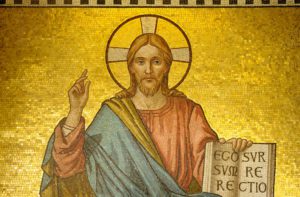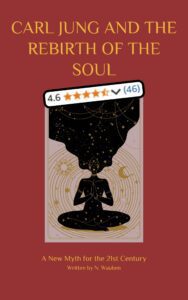Table of Contents
Introduction to The Karamazov Brothers
The Grand Inquisitor is a poem that can be found in The Karamazov Brothers, a book written by Fyodor Dostoevsky. In the copy that I have the poem starts on page 269. The Karamazov Brothers is a beautifully written book. Its main story is remarkably interesting, it depicts the story of three brothers: Dmitri, Ivan and Alyosha. Their father has been violently murdered, and the reader will be wondering throughout most of the book which of the brothers is the guilty one.
The three brothers differ widely from eachother. Each of them has a vastly different character and differ in their religious and philosophical viewpoints. Dmitri is passionate and impulsive, Ivan is intellectual and sceptic, and Alyosha is a deeply religious monk. These varying viewpoints lead to interesting conversations between the brothers throughout the book. The Grand Inquisitor is a poem written by Ivan, who tells it to Alyosha, who is the first person to hear the poem.
The Grand Inquisitor
The story of The Grand Inquisitor is set in Sevilla, in Spain, in the sixteenth century during the Spanish Inquisition. In the poem Christ appears on the stage suddenly “He comes on the scene in my poem, but He says nothing, only appears and passes on.” (p.270) Even though Christ does not say anything throughout the poem, His occurrence, and especially the response to His recurrence creates an interesting situation.
Ivan explains how, after so many years of waiting, some people started to lose their faith, and started to spread doubt, while others remained faithful. “But those who remained faithful were all the more ardent in their faith. The tears of humanity rose up to Him as before, awaited His coming, loved Him, hoped for Him, yearned to suffer and die for Him as before.” (p. 271) The main character in the poem is the Grand Inquisitor a cardinal who, during his reign orders many heretics to be burned. The reader would suspect that he, who was capable of murdering many ‘to the glory of God’, would be more than pleased with the return of Christ. However, as we will see, Christ’s recurrence creates a problematic situation for the inquisitor and Christianity in general.
Christ makes his appearance in Sevilla the day after almost a hundred heretics had been burned in His name.
“He came softly unobserved, and yet, strange to say, everyone recognised Him […’] the people are irresistibly drawn to Him, they surround Him, they flock about Him, follow Him. He moves silently in their midst with a gentle smile of infinite compassion. The sun of love burns in His heart, light and power shine from His eyes, and their radiance, shine on the people, stirs their hearts with responsive love.” (p.272)
Christ performs several miracles; He makes a blind man see and raises a young child from the death. The Grand Inquisitor witnesses all these miracles, he, however, orders Christ to be arrested. The people are so used to submission that they silently accept the arrest and move on with their lives. The Grand Inquisitor visits Christ in His cell and tells Him that He will be burned at the stake as a heretic the next day: “Why, then, art Thou come to hinder us? For Thou hast come to hinder us, and Thou knowest that. But dost thou know what will be tomorrow? I know not who Thou art and care not to know whether it is Thou or only a semblance of Him, but tomorrow I shall condemn Thee and Burn Thee at the stake as the worst of heretics.” (p.274) The Grand Inquisitor continues to argue that the people will join him in his condemnation of Christ because he is so powerful, and they will do whatever he will order of them.

The Grand Inquisitor then explains to Christ, Who remains silent, that Christ made a mistake fifteen hundred years ago. Christ made people free, which, according to the Inqusitor was too much of a burden for the people to bear. He continues to indicate that the Church has finished what Christ could not finish. The Church has made the people absolutely free by taking their freedom from them and controlling it for them: “For fifteen centuries we have been wrestling with Thy freedom, but now it is ended for good […] now, today, people are more persuaded than ever that they have perfect freedom, yet they have brought their freedom to us and laid it humbly at our feet.” (p.275)
Christ’s return would disrupt this ‘progress’ made by the Church: “Thou didst reject the only way by which men might be made happy. But, fortunately, departing, Thou didst hand on the work to us. Thou hast promised, Thou hast established by Thy word, Thou hast given to us the right to bind and to unbind, and now, of course, Thou canst not think of taking it away. Why, then, hast Thou come to hinder us?” (Ibid)
The Three Temptations of Christ
The Great Inquisitor then turns to address ‘the three temptations’ or ‘three questions’ that were set out to Christ by Satan during Christ’s temptation in the desert. The Grand Inquisitor is explicit in the weight he believes these questions have: “From those questions alone, from the miracle of their statement, we can see that we have here to do not with the fleeting human intelligence, but with the absolute and eternal. For in those three questions the whole subsequent history of mankind is, as it were, brought together into one whole, and foretold, and in them are united all the unsolved historical contradictions of human nature.” (p.276) The Inquisitor argued that Christ made a mistake in his response to these temptations/questions.
1. Satan tempted Christ to turn stones into bread. Satan tempted Christ to turn stones into bread by arguing that the people would follow him wherever He went if they witnessed this miracle, it would give Christ immense power. Christ, however, thought that this would cost the people their freedom. “Thou wouldst not deprive man of freedom and didst reject the offer, thinking, what is that freedom worth if obedience is bought with bread?” (Ibid)
Christ argued that people live not only by bread. The Inquistor, however, indicated that this was a mistake, because he argued that the people simply wanted to be fed, even if it were to cost them their freedom. “In the end they will lay their freedom at our feet, and say to us, ‘Make us your slaves, but feed us.’” (p.277) The ‘bread of heaven’ would, according to the Grand Inquisitor, not compare to the ‘earthly bread’ because the human race is week and sinful and only wants what is in front of him. Furthermore, he argued, only a handful of people would follow Christ in his pursuit for the bread of heaven. He asks Christ what he would do with the millions that are not strong enough and remain hungry while they wait for the heavenly?
The Inquistor argues that the Church cares for the numerous and weak and will make a huge sacrifice in their name: “They will marvel at us and look on us as gods, because we are ready to endure the freedom which they have found so dreadful and to rule over them – so awful it will seem to them to be free. But we shall tell them that we are Thy servants and rule them in Thy name. We shall deceive them again, for we will not let Thee come to us again. That deception will be our suffering, for we shall be forced to lie.” (p.278) Therefore, the Inquisitor argues, he will be doing the people a favour by condemning Christ to death.
2. Satan tempted Christ to jump from a temple. For if Christ were really the son of God, angels would safe him: “When the wise and the dread spirit set Thee on the pinnacle of the temple and said to Thee, ‘if Thou wouldst know whether Thou art the Son of God then cast Thyself down, for it is written: the angels shall hold him up lest he fall and bruise himself, and Thou shalt know then whether Thou art the Son of God and shalt prove then how great is Thy faith in Thy Father.’” (p. 280)
Christ refused this second temptation as well. By refusing to enact such a miracle the Great Inquisitor argued that Christ did not fulfil the wishes of man: “for man seeks not so much God as the miraculous. And as man cannot bear to be without the miraculous, he will create new miracles of his own for himself, and will worship deeds of sorcery and witchcraft, though he might be a hundred times over a rebel, heretic and infidel.” (p.Ibid) The Grand Inquisitor therefore argued that Christ, by not embodying the miraculous, planted the seeds for heresy in man. It was now up to the Church to correct this mistake.
3. Christ was offered to rule over all the kingdoms of the earth: “Hadst thou accepted that last gift of the mighty spirit, Thou wouldst have accomplished all that man seeks on earth – that is, someone to worship, someone to keep his conscience, and some means of uniting all in one unanimous and harmonious ant-heap, for the craving for universal unity is the third and last anguish of man.” (p.282) As long as this universal unity is not achieved, men will continue to strive for it. Thereby universal peace can never be achieved if there is no universal unity. The Grand Inquisitor argued that Christ had the possibility to achieve universal peace but was too proud to accept this gift.
The Grand Inquisitor observed that man has three desires: obedience, miracles, and worship. Christ, by accepting the three temptations, had the possibility to fulfil these three desires for man. By refusing Satan, however, Christ doomed mankind to eternal insecurity, struggle, and emptiness. The Church stepped in to correct this ‘mistake’ and offered man someone to obey, provided man with miracles and gave them someone to worship. In this sense, the Inquisitor, by reversing the actions taken by Christ, thought he was doing mankind a favour.
4. The Kiss
When the Inquisitor had finished speaking, he waited for Christ to answer him. Christ, however, remained silent, until: “He suddenly approached the old man in silence and softly kissed him on his bloodless aged lips. That was all his answer.” (p.288) The Inquisitor then decided to free Christ, ordering him never to return. What is the meaning of the kiss? I am not sure how to interpret this kiss, and I suppose it is up to the reader to decide its true meaning. Was Christ grateful to the Inquisitor for correcting his mistakes?
5. The Grand Inquisitor: Conclusions
The question that we can ask ourselves after reading this poem is: what would happen if Christ were to return today? Even if a saviour may come, he might be silenced because he might be too much of a disruptive force to the status quo.
Dostoevsky was himself deeply religious. I do not think that the story is therefore in any sense anti-religious, instead I believe that the story tells us, that we should be mindful that the institutions that we have created to represent our best interests, might eventually act contrary to our interest because they want to maintain their power.
This might be the case with religious institutions, but also with governments for example. What makes it more complicated, however, is that these institutions, similarly to the Church and the Grand Inquisitor in the poem, might think that they are doing mankind a favour by taking away their freedom. And who knows, perhaps they are doing mankind a favour: “They have set up gods and challenged one another, ‘put away your gods and come and worship ours, or we will kill you and your gods!’ And so it will be to the end of the world, even when gods disappear from the earth; they will fall down before idols just the same.” (p.278)
Thank you for reading! If you have enjoyed reading about the Grand Inquistor, then you might also enjoy reading about Nietzsche’s Tarantulas.

